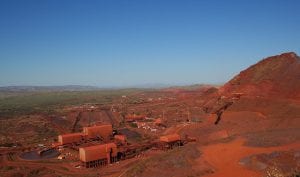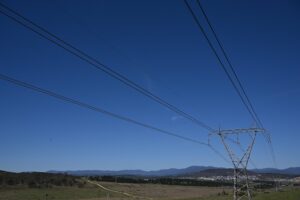Former Macquarie Group banker Oliver Yates is the hot tip to be announced as the inaugural CEO of the $10 billion Clean Energy Finance Corporation.
RenewEconomy understands that the appointment of Yates as head of the CEFC could be announced as early as Sunday. It will likely be jointly announced by Treasurer Wayne Swan and Climate Change Minister Greg Combet. A spokesman for the Treasurer’s office said he was unaware of any immediate announcement.
The appointment follows a search of several months by the CEFC board led by Reserve Bank director and CEFC chair Jillian Broadbent. The choice of Yates would also extend a close connection of the board to Macquarie – director Michael Carapiet had a 22-year career at Macquarie and was a former chair of Macquarie Capital and director Anna Skarbek was a former investment banker in Macquarie’s energy and utilities division.
The CEFC will not begin investing until July 1, but intends to “hit the ground running” and be well prepared to make its first investments at that time. That could be crucial, because the Opposition has vowed to unwind the CEFC – at times describing it as a clean energy “slush fund” and comparing it unfavourably with the US loan guarantee program – but the government is keen that at least some investments are locked in before going to the next election, which is due late next year.
Yates, according to his profile on the website of DriftWood Capital, where he has been a director, had a 22-year career at Macquarie and led its initiatives in wind, solar, biofuels, carbon credits and other renewable businesses. He has completed transactions in Sweden, Germany, Japan, Austria, Ireland, UK, Finland, USA, Indonesia, and Australia. He is also a former director and acting chairman of the listed coal gasification and gas-to-liquids group Linc Energy.
The choice of Yates appears to fit all the boxes required of the role – a knowledge of finance, a knowledge of clean energy business and technologies, and contacts across the political divide.
The creation of the CEFC – which was pushed for heavily by The Greens and independents – is seen as critically important to provide assistance for helping commercialise new technologies, where it will work with the Australian Renewable Energy Agency, and investing in “enabling” technologies such as grids and hybrids.
Last month, Broadbent said the objective of the CEFC would be to “apply capital with a commercial filter to facilitate an increased flow of funds into clean energy to position and prepare Australia for a clean energy future.”








